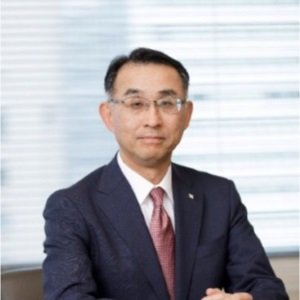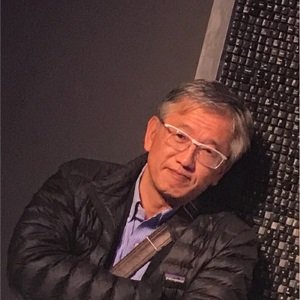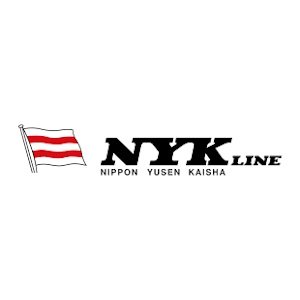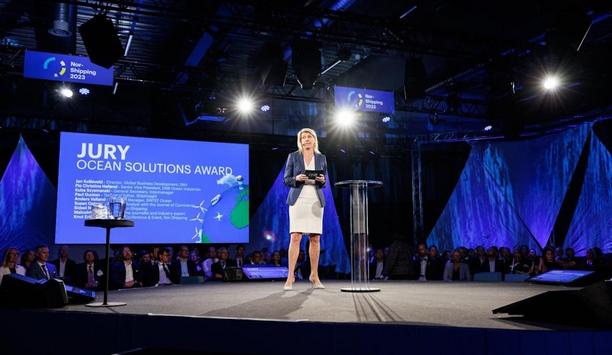Nippon Yusen Kaisha (NYK) Line - Experts & Thought Leaders
Latest Nippon Yusen Kaisha (NYK) Line news & announcements
Nor-Shipping 2025, taking place in Oslo and Lillestrøm 2-6 June, has announced the shortlists for two of its most coveted accolades, the Next Generation Ship Award and the Ocean Solutions Award. Celebrating innovations, technologies and pioneering projects capable of balancing both environmental and commercial sustainability, the initiatives attracted a huge number of entries from across the world. Selecting the eventual winners was, according to Nor-Shipping Director Sidsel Norvik, “tougher than ever”. Pioneering projects Nor-Shipping’s Next Generation Ship Award champions trail-blazing projects that are either newbuildings under construction, conversions, retrofits, or recent deliveries. This year’s shortlisted entrants are: Windcat Workboats’ Elevation Series CSOVs: Hydrogen-powered, offshore service vessels developed in collaboration with Damen and CMB.TECH. Solvang Shipping’s Clipper Eris retrofit: Carbon capture and storage retrofit on a 21,000m3 ethylene carrier, reducing GHG emissions. NYK’s Sakigake conversion: The world’s first ammonia-fuelled tugboat, converted from LNG fuel to demonstrate low-carbon alternatives. Samskip’s SeaShuttle feeder vessels: Hydrogen fuel cell-powered zero-emission container ships for shortsea routes. Bibby Marine’s eCSOV hybrid vessels: Offshore wind support vessels designed for long-term zero-emission operations. From challenge to opportunity The Ocean Solutions Award, meanwhile, is open to Nor-Shipping participants with landmark innovations capable of helping the industry meet some of its most pressing challenges. As always, the competition was intense, with the expert jury eventually selecting the following shortlisted nominees: Wärtsilä Carbon Capture and Storage: A modular system designed for integration into existing propulsion setups, reducing CO₂ emissions. Zeabuz autonomous ship platform: Pioneering remote and autonomous vessel operations to address crew shortages and enhance safety. Wärtsilä ammonia solution: A full-scale deployment of ammonia as a marine fuel, showcasing safety and operational efficiency. ORCA AI situational awareness: An AI-driven platform enhancing navigational safety through real-time risk detection and data analysis. bound4blue’s eSail system: Innovative ‘suction sail’ wind propulsion solutions cutting fuel consumption, emissions and easing regulatory compliance for a wide range of vessel types. Fierce competition “What a year,” comments Nor-Shipping Director Norvik. “The competition was fiercer than ever, with some outstanding entrants, so getting this far in the awards should be a huge source of pride for all the shortlisted companies and teams." “The evolving nature of the competing fields every time we run these initiatives is a testament to both the progress within the industry and the continued commitment of key stakeholders to build a cleaner, smarter, and more resilient maritime future. We’re proud to support these innovations and can’t wait to see the winners enjoying the spotlight when the shipping world meets next month in Norway!” Winners of the Next Generation Ship Award The winners of the Next Generation Ship Award and Ocean Solution Award will be revealed in front of an audience of key industry decision makers at Nor-Shipping’s Ocean Leadership Conference on 3 June. This year’s Nor-Shipping programme, celebrating the 60th anniversary of the event week, focuses on the theme of #Future-Proof. More than 50,000 decision makers, and around 1,000 exhibiting companies, will attend the unique week-long event.
The world’s first commercial-use ammonia-fueled vessel, Sakigake, has successfully completed a three-month demonstration voyage, during which the vessel engaged in tugboat operations in Tokyo Bay and achieved a GHG-emission reduction of up to approximately 95%. The vessel was completed by Nippon Yusen Kabushiki Kaisha and IHI Power Systems Co., Ltd., in cooperation with Nippon Kaiji Kyokai as part of a Green Innovation Fund Project under Japan’s New Energy and Industrial Technology Development Organisation. NEDO will continue to promote research and development of next-generation fuel vessels, including developing an ammonia-fueled ammonia gas carrier and working toward achieving carbon neutrality in the shipping industry. Background The development project of this vessel started as part of NEDO’s Green Innovation Fund Project To achieve net-zero emissions in marine transport, it is essential to switch from existing heavy fuel oil to gas fuels such as hydrogen, ammonia, and carbon recycling methane. Developing marine machinery for hydrogen-fueled ammonia-fueled vessels is also necessary. The development project of this vessel started in October 2021 as part of NEDO’s Green Innovation Fund Project; 'Development of vessels equipped with domestically produced ammonia-fueled engines'. It was completed in August 2024, becoming the world’s first commercial-use ammonia-fueled vessel. Afterward, NYK Group company Shin-Nippon Kaiyosha engaged the vessel in a three-month demonstration voyage while conducting tugboat operations in Tokyo Bay. Project Results NYK and IPS analysed the ammonia co-firing and GHG-reduction rates during vessel operations and confirmed them to consistently exceed 90% and rise to approximately 95% in each of the main engine load ranges, as shown in the table below. The demonstration tests while in tugboat operation is the world’s first trial, confirming that ammonia is one of the most viable and promising options as a next-generation fuel for vessels. A commemorative ceremony was held at the port of Yokohama to mark the successful completion of the vessel's three-month demonstration voyage and celebrate this Green Innovation Fund Project milestone. Representatives from NEDO, NYK. IPS, ClassNK, Ministry of Land, Infrastructure, Transport and Tourism, Ministry of Economy, Trade and Industry, and the city of Yokohama attended the ceremony. Future plans The vessel will continue to be used for tugboat operations in Tokyo Bay, and we will continue to accumulate knowledge related to the development and operation of ammonia-fueled vessels. In addition, NYK, Japan Engine Corporation, IPS, and Nippon Shipyard Co., Ltd. are working together to develop an ammonia-fueled ammonia gas carrier, which is scheduled to be delivered in November 2026, also as part of NEDO’s Green Innovation Fund Project; 'Development of vessels equipped with domestically produced ammonia-fueled engines'. NEDO will promote research and development of next-generation fuel vessels, including ammonia-fueled vessels, and will work towards achieving carbon neutrality in the shipping industry.
Knutsen NYK Carbon Carriers AS, a subsidiary of Nippon Yusen Kabushiki Kaisha and Knutsen Group, has obtained Approval in Principle from ClassNK for the design of liquified CO2 carriers that use the elevated pressure method to store and transport liquefied carbon dioxide at ambient temperature. ClassNK has carried out a design review of this ship in accordance with the Rules for the Survey and Construction of Steel Ships, 'Part N', and has issued an Approval in Principle after confirming that the ship meets the prescribed requirements. Advancing carbon storage The LCO2-EP carrier uses LCO2-EP Cargo Tank technology developed by KNCC to transport LCO2The LCO2-EP carrier uses LCO2-EP Cargo Tank technology developed by KNCC to transport LCO2 in a stable state. Since there is no need to cool LCO2 to cryogenic temperatures, it is easy to handle and potentially reduces energy and costs during liquefaction. NYK, KNCC, and ENEOS Xplora Inc. have developed a Floating Liquefied Storage Unit that combines the LCO2-EP Cargo Tank technology with the Isenthalpic Expansion Cooling & Liquefaction Process. This Process has been researched and developed in collaboration among the three companies. ClassNK has issued an AiP following a review based on the Rules for the Survey and Construction of Steel Ships, 'Part PS', 'Guidelines for the Design of Floating Liquefied Natural Gas and Liquefied Petroleum Gas Production, Storage, Offloading and Regasification Units', etc. Innovative carbon solution This FLSU is a pioneering concept that liquefies and temporarily stores CO2 that has been collected and transported as gas in an onshore facility making it ready for further transport by LCO2 carrier. By utilising the features of the EP method, which has the potential to reduce the energy required for liquefaction, and adopting the Process, which is expected to be simpler and more compact than conventional cooling methods, it has become possible to install a liquefaction plant on a floating structure. Scaling carbon solutions Carbon Capture, Utilisation and Storage is one area that is expected to play a certain role in achieving a carbon-neutral society. However, issues need to be addressed, such as reducing overall costs and securing land for liquefaction and storage facilities. By utilising this FLSU, the cost of CO2 liquefaction and the land area required onshore in the CCUS value chain can be reduced, expanding the possibilities for realising CCUS. Towards a greener future NYK, KNCC, ENEOS Xplora, and ClassNK will continue to contribute to realising a carbon-neutral society by examining various technologies and assessing their economic and safety aspects towards achieving a CCUS value chain.







